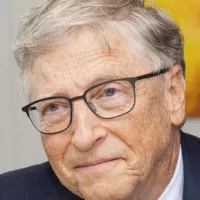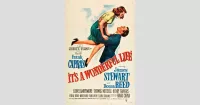Steven Spielberg is a highly influential American filmmaker, recognized as one of the greatest directors in cinematic history and a key figure in the New Hollywood era. He is also the highest-grossing film director of all time. Known as a pioneer of the modern blockbuster, Spielberg's filmography includes numerous critically acclaimed and commercially successful films considered among the greatest and highest-grossing ever made.
1941: Setting of 1941 movie plot
The movie 1941, released in 1979, is about Californians preparing for a Japanese invasion after the attack on Pearl Harbor in 1941.
1943: Original release of A Guy Named Joe
The story for the movie Always, which was released in 1989, was a modern remake of A Guy Named Joe (1943), one of Spielberg's favorite childhood films.
1944: WWII Context for Saving Private Ryan
Spielberg reminded the cast of Saving Private Ryan halfway through filming that they were making a tribute to thank "your grandparents and my dad, who fought in the war" which occurred in 1944.
1953: Release of George Pal's War of the Worlds
George Pal's film adaptation of War of the Worlds was released in 1953. Spielberg had been a fan of the book and this movie.
1956: Publication of Minority Report short story
Philip K. Dick's short story Minority Report, which served as the basis for the film, was published in 1956.
1967: Release of Playtime
Jacques Tati's Playtime was released in 1967, later inspiring the movie "The Terminal" released in 2004.
1968: Recognition of Best American Films
In 1968, Stanley Kauffmann created a list, where he later included Close Encounters of the Third Kind, and placed it first on his list of the best American films from 1968 to 1977.
1969: Publication of Supertoys Last All Summer Long
Brian Aldiss's short story "Supertoys Last All Summer Long", which served as the basis for A.I. Artificial Intelligence, was originally published in 1969.
1972: Munich massacre
In 1972, the Munich massacre occurred, where eleven Israeli Olympic athletes were kidnapped and murdered, leading to the events depicted in Spielberg's film Munich.
1975: Initial Discussion for Always
In 1975, Spielberg discussed the film Always with Dreyfuss. Twelve drafts were written before the film was released in 1989.
1977: Release of Close Encounters of the Third Kind
In 1977, Steven Spielberg and Richard Dreyfuss reunited for Close Encounters of the Third Kind, a film about UFOs. Spielberg employed 65 mm film and a new live-action recording system for the film. François Truffaut was cast as scientist Claude Lacombe, and Douglas Trumbull handled special effects. The film won Academy Awards for Best Cinematography and Best Sound Effects Editing and received positive reviews.
1978: Debbie Allen reads Amistad I
In 1978, Debbie Allen read the book Amistad I and thought Spielberg would be perfect to direct a movie based on it.
1979: Release of 1941
In 1979, Spielberg directed 1941, an action-comedy about Californians preparing for a Japanese invasion after Pearl Harbor. The film grossed over $92.4 million worldwide but received negative reviews.
1979: Kubrick buys the rights to Supertoys Last All Summer Long
In 1979, Stanley Kubrick bought the rights to the story "Supertoys Last All Summer Long" and worked on an adaptation for years before suggesting that Spielberg direct it.
1981: Release of Raiders of the Lost Ark
In 1981, Spielberg directed Raiders of the Lost Ark, starring Harrison Ford and Karen Allen. The film was shot in multiple locations and won Academy Awards for Best Art Direction, Best Film Editing, Best Sound, Best Sound Editing, and Best Visual Effects. It became the first film in the Indiana Jones franchise and was a box-office success.
1982: Release and Awards for E.T.
In 1982, E.T. the Extra-Terrestrial was released, grossing $700 million worldwide and winning four Academy Awards: Best Original Score, Best Sound, Best Sound Editing, and Best Visual Effects. Ronald and Nancy Reagan attended a special screening and were emotionally moved by the film.
1982: Release of E.T. the Extra-Terrestrial
In 1982, Spielberg released E.T. the Extra-Terrestrial, a science fiction film about a boy who befriends an alien. Spielberg avoided storyboards for spontaneity and shot the film in sequence for authentic performances. The film was well-received, and its premiere at the Cannes Film Festival led to audience members being emotionally touched.
1983: Production of Twilight Zone: The Movie
In 1983, Spielberg co-produced Twilight Zone: The Movie with John Landis and contributed the "Kick the Can" segment to the anthology film.
1984: Release of Indiana Jones and the Temple of Doom
In 1984, Spielberg directed Indiana Jones and the Temple of Doom, a prequel to Raiders of the Lost Ark. Filmed in multiple locations, the film was darker than its predecessor and led to the creation of the PG-13 rating. The film won the Academy Award for Best Special Effects and marked the meeting of Spielberg and his future wife, Kate Capshaw.
1984: Production of Gremlins
In 1984, Spielberg served as producer or executive producer on Gremlins for his production company, Amblin Entertainment.
1984: Kubrick suggests Spielberg direct A.I.
In 1984, Stanley Kubrick suggested that Spielberg direct A.I. Artificial Intelligence, believing the story was closer to Spielberg's sensibilities.
1985: Production of The Goonies, Back to the Future and The Color Purple
In 1985, Spielberg served as producer or executive producer on The Goonies and Back to the Future for his production company, Amblin Entertainment. Spielberg also began making films for Warner Bros, starting with The Color Purple, a drama based on Alice Walker's novel. It was Spielberg's first film on a dramatic subject matter, and it received eleven Academy Award nominations and Spielberg won Best Director from the Directors Guild of America.
1986: Release of Sword of Gideon
The book Vengeance, which formed the basis of Spielberg's Munich, was previously adapted into the 1986 television film Sword of Gideon.
1987: Release of Empire of the Sun
In 1987, Spielberg released Empire of the Sun, an adaptation of J. G. Ballard's autobiographical novel, filmed in Shanghai. Despite mixed reviews initially, the film received critical acclaim later on and was nominated for six Academy Awards. The film explores the story of a young boy in a Japanese internment camp during World War II.
1987: Awarded Irving G. Thalberg Memorial Award
In 1987, Steven Spielberg was awarded the Irving G. Thalberg Memorial Award for his work as a creative producer.
1988: Production of Who Framed Roger Rabbit
In 1988, Spielberg served as producer or executive producer on Who Framed Roger Rabbit for his production company, Amblin Entertainment.
1989: Release of Indiana Jones and the Last Crusade
In 1989, Spielberg directed Indiana Jones and the Last Crusade, with the return of Lucas and Ford. Sean Connery was cast as Jones's father. The film received mostly positive reviews and was a box-office success.
1989: Release of Always
In 1989, Spielberg released Always, a romantic drama starring Richard Dreyfuss about an aerial firefighter. The film was commercially unsuccessful and received mixed reviews.
1989: Launched Cinematography Merit Badge
In 1989, Steven Spielberg helped the Boy Scouts of America develop a merit badge in cinematography. Also In 1989, Spielberg was presented with the Distinguished Eagle Scout Award.
1990: Production of Joe Versus the Volcano and Arachnophobia
In 1990, Spielberg served as producer or executive producer on Joe Versus the Volcano and Arachnophobia for his production company, Amblin Entertainment.
1991: Release of Hook
In 1991, Spielberg released Hook, starring Robin Williams, Julia Roberts, and Dustin Hoffman. Despite clashes on set and mixed reviews, the film earned over $300 million worldwide.
March 1, 1993: Filming Commences for Schindler's List
On March 1, 1993, filming for Schindler's List began in Poland while Spielberg was still editing Jurassic Park in the evenings. Spielberg brought his family to make filming more bearable.
1993: Release of Jurassic Park
In 1993, Spielberg released Jurassic Park, based on Michael Crichton's novel. The film utilized computer-generated imagery and became the highest-grossing film at the time, winning three Academy Awards.
1994: Spielberg sets up DreamWorks and takes a break from directing
In 1994, Spielberg took a break from directing to spend more time with his family, and set up his new film studio, DreamWorks, with Jeffrey Katzenberg and David Geffen.
1994: Honorary degree from University of Southern California
In 1994, Steven Spielberg received an honorary degree from the University of Southern California.
1995: Received AFI Life Achievement Award
In 1995, Steven Spielberg received the AFI Life Achievement Award.
1996: Named Most Influential Person of His Generation
In 1996, Life magazine named Steven Spielberg the most influential person of his generation.
May 1997: Release of The Lost World: Jurassic Park
In May 1997, The Lost World: Jurassic Park was released, becoming one of the highest grossing films of the year. The film is a sequel to Jurassic Park and features more realistic onscreen creatures.
1997: Stalked by Jonathan Norman
In 1997, Jonathan Norman stalked Steven Spielberg and attempted to enter his home while in possession of a "rape kit". Norman was subsequently jailed for 25 years. Spielberg expressed fear that Norman intended to "rape or maim him".
1997: Release of Amistad
In 1997, Spielberg's film Amistad, based on the 1839 events aboard the slave ship La Amistad, was released under DreamWorks. The film struggled to find an audience and underperformed at the box office.
1998: Release of Saving Private Ryan
In 1998, Spielberg released Saving Private Ryan, a World War II epic. The film was praised for its direction and realistic portrayal of war and was a box office success.
1998: Awarded Order of Merit of the Federal Republic of Germany
In 1998, Steven Spielberg was awarded the Order of Merit of the Federal Republic of Germany by President Roman Herzog in recognition of Schindler's List and his work with the Shoah Foundation.
August 1999: Spielberg and Hanks awarded Distinguished Public Service Medal
In August 1999, Steven Spielberg and Tom Hanks were awarded the Distinguished Public Service Medal from the Secretary of Defense William S. Cohen for their work on Saving Private Ryan.
1999: Kubrick dies
In 1999, Stanley Kubrick died. Spielberg decided to direct A.I. and wrote the screenplay himself, trying to be faithful to Kubrick's vision.
1999: Most popular director in Sky Premier poll
In 1999, Steven Spielberg had seven films in the top 100 in a "Millennium Movies" survey of British film fans run by the Sky Premier channel, making him the most popular director.
1999: Honorary degree from Brown University
In 1999, Steven Spielberg received an honorary degree from Brown University.
1999: Awarded Medal for Distinguished Public Service
In 1999, Steven Spielberg was awarded the Medal for Distinguished Public Service and an award for Outstanding Directorial Achievement in Motion Pictures by the Directors Guild of America for Saving Private Ryan.
December 31, 1999: Directed 'The American Journey'
On December 31, 1999, Steven Spielberg directed an 18-minute film titled "The American Journey", scored by John Williams, for the USA Millennium celebrations. It was shown at America's Millennium Gala in Washington, D.C.
2001: Release of A.I. Artificial Intelligence
In 2001, Spielberg released A.I. Artificial Intelligence, a loose adaptation of Brian Aldiss's short story. The film revolves around an android who dreams of being a "real boy" and grossed $236 million worldwide.
2001: Resigned from Boy Scouts of America board
In 2001, Steven Spielberg resigned as a member of the national advisory board of the Boy Scouts of America due to his disagreement with the organization's anti-homosexuality stance.
2001: Awarded Honorary Knighthood
In 2001, Steven Spielberg was awarded an honorary knighthood, Knight Commander of the Most Excellent Order of the British Empire, by Queen Elizabeth II for services to the British film industry.
2001: Stalked by Diana Napolis
In 2001, Steven Spielberg was stalked by conspiracy theorist and former social worker Diana Napolis, who accused him and actress Jennifer Love Hewitt of installing a mind-control device in her brain, and being part of a satanic cult. Napolis was committed to a mental institution and pled guilty to stalking.
2002: Releases of Minority Report and Catch Me If You Can
In 2002, Spielberg released both Minority Report, based on Philip K. Dick's short story, and Catch Me If You Can, based on the autobiography of Frank Abagnale. Both films were commercially successful.
2002: Honorary degree from Yale University
In 2002, Steven Spielberg received an honorary degree from Yale University.
2003: Ranked Most Powerful Person in Movies
In 2003, Premiere magazine ranked Steven Spielberg first place in the list of 100 Most Powerful People in Movies.
2003: Star on Hollywood Walk of Fame and Blessed are the Peacemakers Award
In 2003, Steven Spielberg received a star on the Hollywood Walk of Fame and was awarded the Blessed are the Peacemakers Award from the Catholic Theological Union.
2004: Release of The Terminal
In 2004, Spielberg released The Terminal, a comedy inspired by the story of Mehran Karimi Nasseri and Jacques Tati's Playtime.
2004: Awarded Legion of Honour
In 2004, Steven Spielberg was awarded France's highest civil honor, the Legion of Honour by President Jacques Chirac.
2004: Tom Shone's quote on Spielberg's influence
In 2004, film critic Tom Shone praised Steven Spielberg's work, stating that the medium of film was most fully itself in his work over the last twenty-five years.
December 2005: Sale of DreamWorks to Viacom
In December 2005, Spielberg and his partners sold DreamWorks to media conglomerate Viacom.
2005: Ranked Greatest Film Director of All Time
In 2005, Empire magazine ranked Steven Spielberg number one on a list of the greatest film directors of all time.
2005: Release of War of the Worlds
In 2005, Spielberg directed War of the Worlds, based on H. G. Wells's novel. The film was a box-office hit.
2005: Release of Munich
In 2005, Spielberg's Munich, about the Israeli government's retaliation after the 1972 Munich massacre, was released. The film garnered mostly positive reviews but was also one of Spielberg's most controversial films.
2005: Inducted into Science Fiction Hall of Fame
In 2005, Steven Spielberg was inducted into the Science Fiction Hall of Fame, the first year it considered non-literary contributors.
February 2006: Finalization of DreamWorks sale
In February 2006, the sale of DreamWorks to Viacom was finalized.
June 2006: Spielberg abandons Interstellar project
In June 2006, Spielberg planned to make Interstellar, but abandoned the project.
July 15, 2006: Awarded Gold Hugo Lifetime Achievement Award
On July 15, 2006, Steven Spielberg was awarded the Gold Hugo Lifetime Achievement Award at the Summer Gala of the Chicago International Film Festival.
February 20, 2007: Fundraiser for Barack Obama
On February 20, 2007, Steven Spielberg, Jeffrey Katzenberg, and David Geffen hosted a fundraiser for Barack Obama, inviting Democrats to attend.
2007: Fundraiser for Barack Obama
On February 20, 2007, Steven Spielberg, along with Jeffrey Katzenberg and David Geffen, invited Democrats to a fundraiser for Barack Obama.
February 2008: Received Visual Effects Society Lifetime Achievement Award
In February 2008, Steven Spielberg received the Visual Effects Society Lifetime Achievement Award for his contributions to the visual effects industry.
February 2008: Resigned as advisor to 2008 Summer Olympics
In February 2008, Steven Spielberg resigned as advisor to the 2008 Summer Olympics in protest of the Chinese government's inaction over the War in Darfur. He expressed that his conscience would not allow him to continue business as usual.
June 2008: Received Hugh Downs Award
In June 2008, Steven Spielberg received Arizona State University's Hugh Downs Award for Communication Excellence.
September 2008: Supported same-sex marriage in California
In September 2008, Steven Spielberg and his wife offered their support to same-sex marriage in California by donating $100,000 to the "No on Proposition 8" campaign fund.
October 2009: Received Philadelphia Liberty Medal
In October 2009, Steven Spielberg received the Philadelphia Liberty Medal; the prize was presented by former US President Bill Clinton.
2009: Honorary degree from Boston University
In 2009, Steven Spielberg received an honorary degree from Boston University.
2009: Awarded Cecil B. DeMille Award
In 2009, Steven Spielberg was awarded the Cecil B. DeMille Award by the Hollywood Foreign Press Association for "outstanding contributions to the world of entertainment".
2009: Spielberg begins work on The Adventures of Tintin
Starting in 2009, Spielberg began shooting the first film in a planned trilogy of motion capture films based on Hergé's The Adventures of Tintin.
December 21, 2011: North American Release of The Adventures of Tintin
On December 21, 2011, The Adventures of Tintin: The Secret of the Unicorn was released in North American theaters. The film received generally positive reviews.
November 19, 2013: Honored with Records of Achievement Award
On November 19, 2013, Steven Spielberg was honored by the National Archives and Records Administration with a Records of Achievement Award and given facsimiles of the 13th Amendment.
2013: Listed as One of the 100 Most Influential People
In 2013, Time magazine listed Steven Spielberg as one of the 100 most influential people.
2014: Ranked Most Influential Celebrity
According to Forbes' magazine, Steven Spielberg was ranked at first place of Most Influential Celebrities of 2014.
November 24, 2015: Awarded Presidential Medal of Freedom
On November 24, 2015, Steven Spielberg was awarded the Presidential Medal of Freedom from President Barack Obama at the White House.
July 2016: Awarded gold Blue Peter badge
In July 2016, Steven Spielberg was awarded a gold Blue Peter badge by the BBC children's television program Blue Peter.
2016: Endorsed Hillary Clinton
In 2016, Steven Spielberg endorsed Hillary Clinton in the presidential election and donated $1 million to Priorities USA Action.
2018: Donated to March for Our Lives
In 2018, Steven Spielberg and his wife donated $500,000 to the March for Our Lives student demonstration in favor of gun control in the United States.
December 2023: Shoah Foundation collected testimonies after Hamas attack
In December 2023, after the Hamas-led attack on Israel, the Shoah Foundation, founded by Spielberg, gathered over 100 video testimonies from those who experienced the attacks to add to the collection of "Holocaust survivor and witness testimony." Spielberg expressed shock at the barbarity and emphasized the importance of preserving these stories.
December 2024: Net Worth Estimated at $5.3 Billion
As of December 2024, Forbes estimates Steven Spielberg's net worth at $5.3 billion, making him one of the richest people in the entertainment industry.
Mentioned in this timeline

Bill Gates an American businessman and philanthropist revolutionized personal computing...

Oprah Winfrey is an influential American talk show host television...
Home Box Office HBO is an American pay television service...

It's a Wonderful Life directed by Frank Capra tells the...
Ukraine is a country in Eastern Europe the second-largest on...

Bill Clinton the nd U S President - served as...
Trending

57 minutes ago The Highwomen Return: Carlile, Crow, Judd, and Spencer Reunite for Canyon Performances.

57 minutes ago Raphael Veiga's game impresses fans; Adapts to Mexico after leaving Palmeiras.
57 minutes ago Jalen Williams Injury Scare: Thunder Re-evaluating Hamstring After All-Star Break
3 months ago Titanic Passenger's Gold Pocket Watch Anticipated to Break Auction Records, Selling for Millions.

58 minutes ago Armando 'Hormiga' González's Goal and Missed Opportunity in Chivas vs. América Clash

2 hours ago Jacob Elordi's 'Wuthering Heights' film sparks debate with cringe press tour and changed ending.
Popular

Kid Rock born Robert James Ritchie is an American musician...

Pam Bondi is an American attorney lobbyist and politician currently...
Randall Adam Fine is an American politician a Republican who...

Barack Obama the th U S President - was the...
The Winter Olympic Games a major international multi-sport event held...

XXXTentacion born Jahseh Dwayne Ricardo Onfroy was a controversial yet...

